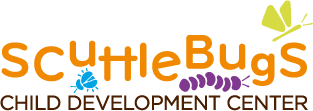THE SCUTTLEBUGS WAY
The ScuttleBugs Way is a unique Curriculum for Early Childhood Education, which incorporates a holistic approach to Education, based on seven core curriculum domains integrating the best Reggio Emilia and Emergent Curriculum practices. We define our curriculum domains as different aspects of today’s child developing for tomorrow’s world. The success stories of our graduates are testament to our program and is a source of great happiness and pride.
Children Really Are Unique
The ScuttleBugs Curriculum is founded on the law of nature: As with DNA, every child is a unique little being with individual experiences, set of skills, base of knowledge and potential for learning and growing. To see a child start to bloom is one of life’s joys. And the strongest blossoms benefit from confidence that is inspired by establishing solid foundations . Our teachers understand each distinctive child intimately, and have the skills and experience to help empower the individual child to foster confidence, cultivate skills and promote knowledge.
We provide an interactive, positive, safe and healthy environment where children are highly motivated, inspired and free to explore their own potential, experiences and knowledge at their own pace while in a team environment. Additionally, we approach each child, their learning style and development paths, holistically. This means firstly that we acknowledge children as multi-dimensional beings, with both conscious and unconscious aspects. Our holistic approach allows for physical, cognitive, and socio-emotional development to occur concurrently and continually. It involves children exploring and discovering as a way of learning and creating knowledge through becoming highly engaged and actively involved in their own learning and development.
Our teachers work with children’s innate curiosity, desire to question, explore and discover and sow the seeds for a lifelong desire to learn and create. Equally important in our rounded approach is to connect the children’s development with their natural environment, building strong relationships through active learning and social activities.
Our well defined and developmentally encompassing curriculum domains will ensure each child has every opportunity to evolve into tomorrow’s leaders, innovators and active participants in society. Our instructional method is inspired by Social Constructivism and approaches used in Reggio Emilia, Italy. Additionally, we work in partnership with families to build a positive foundation essential for a lifetime of learning. Our children play, explore, create, and discover as they develop the knowledge and acquire the confidence required to become successful students and lifelong learners. Our curriculum reflects the most current pedagogy designed to develop age-appropriate skills in language, cognitive, social-emotional, and physical development, while honoring the joy and wonder of these formative years.
We follow the National Association for the Education of Young Children’s (NAEYC) position statements on developmentally appropriate practice and school readiness. We also believe that all domains of children’s development are interrelated, thus teachers must foster learning and development in all areas concurrently. School readiness expectations must be expanded to include physical, cognitive, social and emotional competence as well as positive attitudes towards learning. We believe that curriculum should include child-guided as well as teacher-supported activities and should emphasize hands-on integrated learning. Finally, the most powerful determinant of learning is the teacher’s high-quality interactions with children.
ScuttleBugs Seven Developmental Domains

Social-Emotional
Development
Social skills - awareness of self and others
The Social Child
Social emotional development is one of the most important foundations for future success, and congruently, the most important considerations of an early childhood curriculum are the development of social skills and an awareness of self and others. We help children take responsibility for their own actions, self-care routines, cope with transitions and changes, and follow through with a plan.
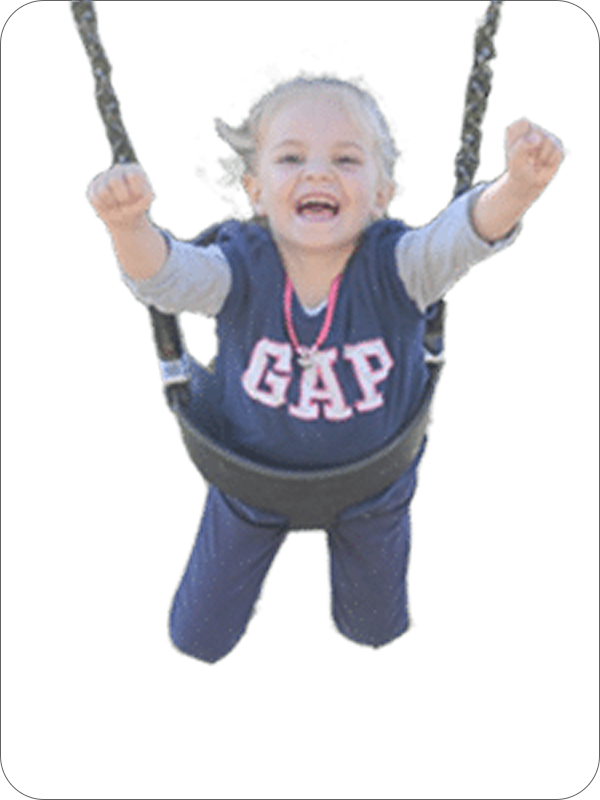
Physical Development
(Incl. Health and Safety)
Strength, coordination and confidence
Physical Child
Building strength, agility, coordination and confidence in both large and small muscle groups is an important area of physical development. Children gain these skills through tactile and sensory play, running, climbing, jumping, balancing, and playing. Motor development is important throughout a child’s early life, because physical development is fundamentally tied to other developmental domains.
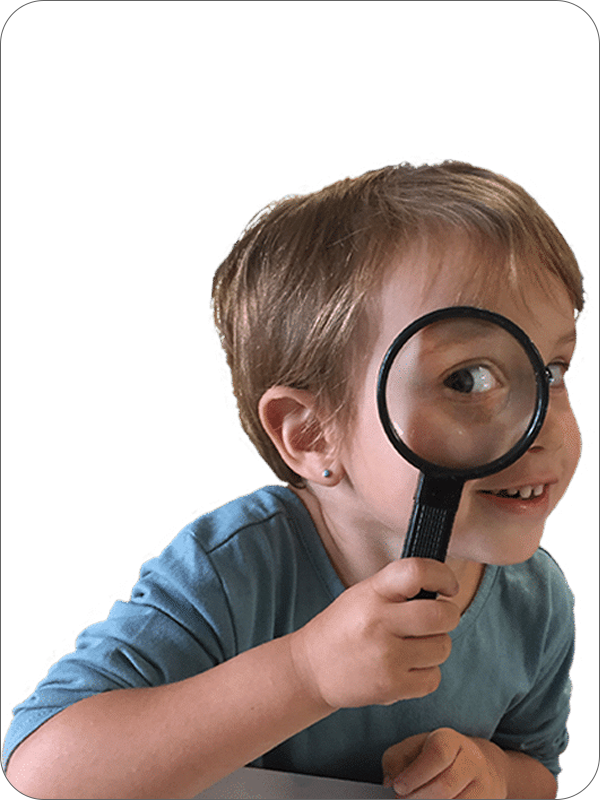
STEM Skills
Development
Science, Technology, Engineering, & Math
Scientific Child
Young children approach the world with a sense of curiosity and wonder. Our role as educators is to support children's natural instincts to learn. It is especially important to support learning in STEM. Early STEM skills lay the foundation for later success in school by helping children learn how to analyze information and solve problems; skills that are useful throughout life. STEM subjects give children opportunities to tinker - to use their minds the 5 senses to play, explore, discover, and learn.
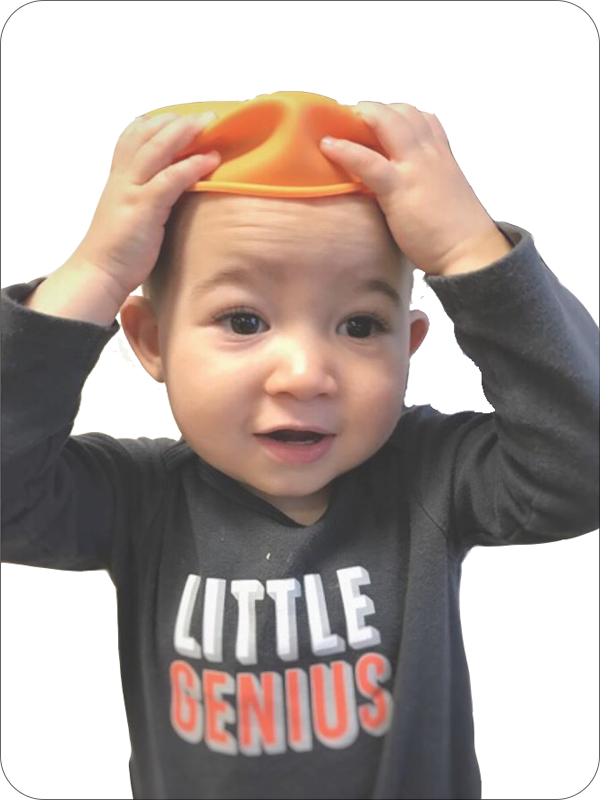
Creative Arts Skills
Development
Exploration of a child’s own interests
Creative Child
This is a an enormous and comprehensive domain – Creative exploration can include talking, writing, acting, drawing, singing, imagination/pretending, painting, music making and dancing. Providing children with free range and ample time for creative play, encouraging exploration of a child’s own interests, and creating a safe and positive environment supports the Reggio-inspired approach and the “100 languages” principle.
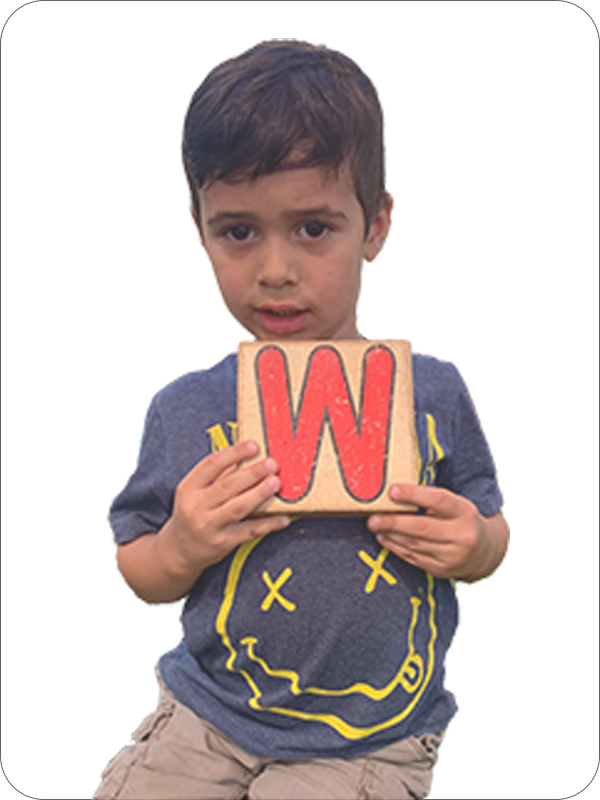
Literacy and Language
Development
Critical in making sense of our world
Linguistic Child
We view literacy and emergent literacy in early childhood as one of the most vital parts of your child’s overall development. It forms the ground work for doing well at school, interacting with others, developing independence, managing finances, using technology and prospering in the labor market of tomorrow. Literacy is critical in helping us make sense of our world.
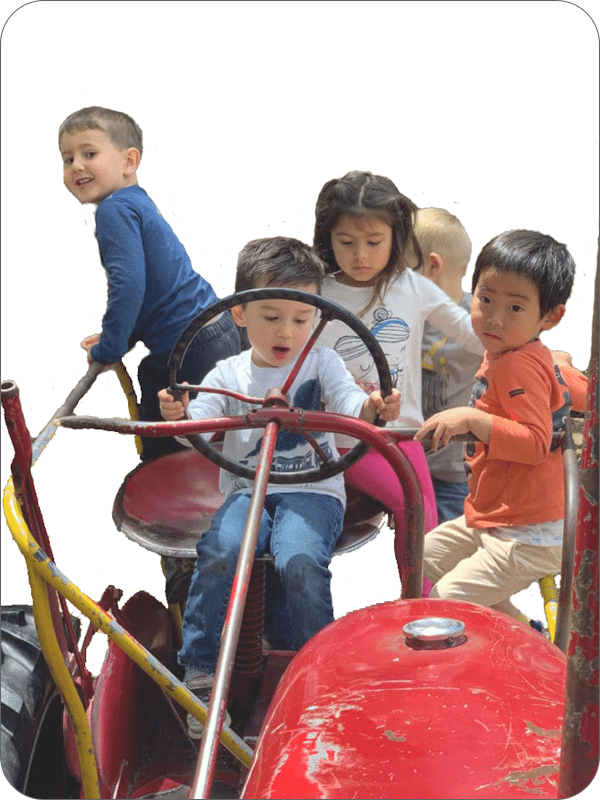
Social Science Skills
Development
Fostering a natural interest in our world
Global Child
Culture, diversity, equality and democracy. We want to set ourselves goals for helping children to understand how they can determine their place in society. The quiet encouragement of a child’s innate lack of prejudice and affirmation of their natural inclination towards open, positive and fair interaction with all people. Heritage language culture development.
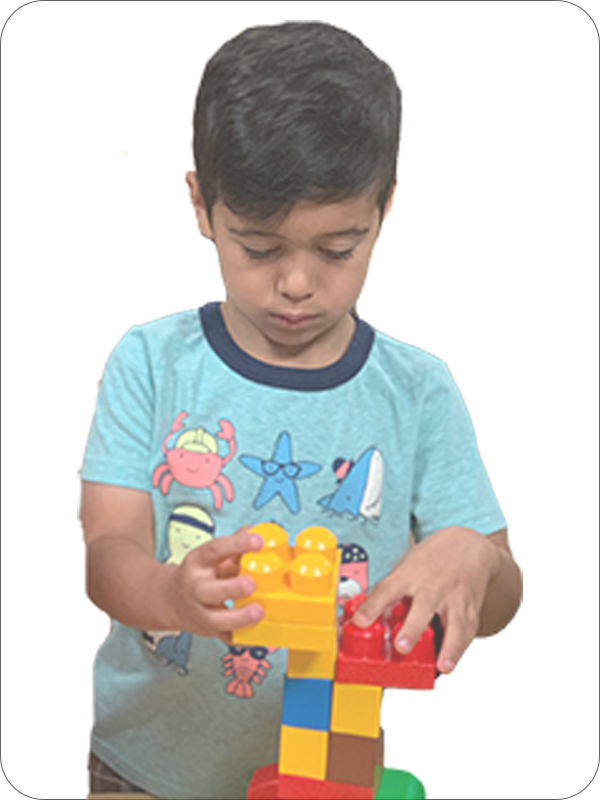
Mathematical Skills
Development
Analytical, logic and reasoning
Mathematical Child
As with Language and Literacy, children develop analytical and mathematical skills best in a number rich environment and in stages. Our activities and materials provide children with opportunities to explore math concepts through hands-on experiences that build on each child's prior knowledge and challenges their logic and reasoning.
So ScuttleBugs Molds Itself to the Kids Not the Other Way Around
- Each child is a protagonist promoter, collaborator, and communicator
- The teacher is considered a co-learner and collaborator (not just an instructor)
- The environment is considered as a "third teacher"
- Parents are viewed as partners, collaborators and advocates for their children.
The guiding principles are:
- Children must have some control over the direction of their learning
- Children must be able to learn through experiences of touching, tasting, moving, listening, and observing
- Children must be able to explore their relationship with others (children, adults, animals) and with material items in their world. Cooperation is fundamental
- As life-long learners ourselves, we capitalize on the team's collective experience and studies, ultimately supporting our whole-child approach.
To bring this all together in a comprehensive framework where specific academics can be taught and assessed, we break down each day into 15-minute teaching ‘opportunities’, each with specific focus. This frees the teachers to listen to the children under their care, and define the best way to teach.
One fundamental principal we follow is that nothing is achieved unless it’s measured. This is the premise of our whole framework, and ties tightly back to the Reggio approach with the need for documentation. Each 15-minute teaching opportunity is interlinked with the broader weekly, monthly and yearly goals, and each opportunity is assessed as a whole; from the child’s perspective, from the teacher’s perspective, and more generally as a feedback mechanism to assess the curriculum as a whole and provide data to modify and enhance the curriculum moving forward.
The ScuttleBugs framework leads to a ‘living curriculum’, constantly adapting to the children, their interests, the environment, the teachers, and new methods – all the while being actively assessed on its overall performance. All this leads to a far more quantitative assessment of how each child is performing and progressing.
Meals Are Also Part of the Curriculum
Food at ScuttleBugs is more than just nourishment – it’s part of our curriculum. While enjoying our meals, children learn about balanced diets, hygiene, and sustainability.
Mealtimes are treated as social occasions. Staff provide guidance, encouragement, and modeling good table manners. Preschoolers are supported in developing self-serving skills, and all children except for Infants are taught to clear their own dishes.
Parents & Teachers together: an Irresistible Force!
We believe clear consistent communication with parents is key for both educational and personal reasons. This period is so important and these memories so precious in the life of the child. Our Directors and teachers talk to parents every day. We communicate with pictures and daily and weekly updates. At formal assessments every 6 months, teachers and parents review the previous assessment report, highlight the child’s progress, strengths, weaknesses and goals for the following 6 months.
Kids & Teachers: another Irresistible Force!
Teaching young children is not a straight line. Every moment, every day is different. We all know the goal and, whatever route each child needs, our teachers ensure we all get there. This is where the skill and knowledge of our teachers shines brightly. Our teachers are conductors, channeling each individual’s mind and imagination while also progressing the children as a peer group.
We also never miss a chance to encourage and challenge the children in a developmentally appropriate manner. At ScuttleBugs there are “teachable moments” any day and everyday. Indoors or outdoors. Classroom, bathroom or mealtimes. Oh, and by the way, we meet or exceed CSEFL standards.
